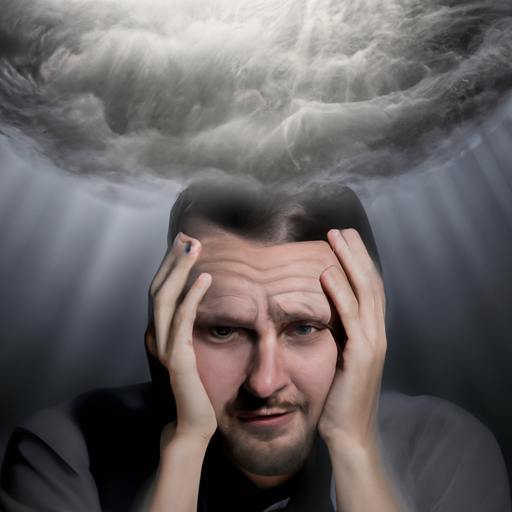Angst disorders have become increasingly prevalent in today’s society, impacting the lives of millions of individuals worldwide. These disorders encompass a range of mental health conditions characterized by excessive worry, fear, and unease. From generalized anxiety disorder to panic disorder and social anxiety disorder, understanding the symptoms, diagnosis, and causes of angst disorders is crucial for effective treatment and management. In this comprehensive article, we will delve into the intricacies of angst disorders, exploring the various treatment approaches available, and offering practical strategies for coping, therapy options, and lifestyle changes that can make a significant difference in managing these debilitating conditions. Whether you or someone you know is struggling with an angst disorder, this article aims to provide valuable insights and guidance towards a path of recovery and improved well-being.
1. Understanding Angst Disorders: Symptoms, Diagnosis, and Causes
Angst disorders, also known as anxiety disorders, are a group of mental health conditions characterized by excessive worry, fear, and unease. These disorders can significantly impair a person’s daily functioning, affecting their relationships, work, and overall quality of life. Understanding the symptoms, diagnosis, and causes of angst disorders is crucial for effective treatment and support.
Symptoms:
The symptoms of angst disorders can vary widely depending on the specific disorder, but they generally involve feelings of apprehension, restlessness, and a sense of impending doom. Some common symptoms include excessive worrying, irritability, difficulty concentrating, muscle tension, and sleep disturbances. Panic attacks, which are sudden and intense episodes of fear, can also occur in certain angst disorders such as panic disorder.
Diagnosis:
Diagnosing an angst disorder involves a comprehensive evaluation by a mental health professional. They will typically assess the individual’s symptoms, medical history, and conduct a psychological evaluation. Diagnostic criteria outlined in the Diagnostic and Statistical Manual of Mental Disorders (DSM-5) help clinicians determine the specific disorder and its severity. It is essential to differentiate angst disorders from temporary stress or normal anxiety, as the former requires specialized treatment.
Causes:
The causes of angst disorders are multifactorial, involving a complex interplay of genetic, environmental, and psychological factors. Genetics play a significant role, as individuals with a family history of anxiety disorders are more susceptible to developing similar conditions. Traumatic experiences, such as physical or emotional abuse, can also contribute to the development of angst disorders. Additionally, imbalances in brain chemistry, specifically the neurotransmitters serotonin and dopamine, have been associated with anxiety disorders.
Other risk factors include chronic medical conditions, substance abuse, and certain personality traits. Furthermore, societal factors like stress-inducing lifestyles, societal pressures, and cultural influences can contribute to the development and exacerbation of angst disorders.
Understanding the symptoms, diagnosis, and causes of angst disorders is vital for developing effective treatment strategies. Early recognition and intervention can help individuals manage their symptoms and improve their overall well-being. Treatment options
2. Effective Treatment Approaches for Angst Disorders: A Comprehensive Guide
Effective Treatment Approaches for Angst Disorders: A Comprehensive Guide
When it comes to treating angst disorders, it is important to adopt a comprehensive approach that addresses the symptoms, causes, and underlying factors contributing to the disorder. While each individual’s experience with angst disorders may vary, there are several evidence-based treatment approaches that have proven to be effective. This section will provide an overview of these approaches and their potential benefits in managing angst disorders.
1. Cognitive Behavioral Therapy (CBT):
CBT is a widely recognized and extensively studied therapeutic approach for angst disorders. It focuses on identifying and modifying negative thought patterns and behaviors that contribute to anxiety. Through CBT, individuals learn coping mechanisms, relaxation techniques, and problem-solving skills to manage anxious thoughts and behaviors. This therapy also aims to challenge irrational beliefs and replace them with more realistic and adaptive ones.
2. Medication:
In some cases, medication may be prescribed alongside therapy to help alleviate the symptoms of angst disorders. Antidepressants, particularly selective serotonin reuptake inhibitors (SSRIs), are commonly prescribed to regulate brain chemicals and improve mood stability. Benzodiazepines may also be prescribed for short-term relief of severe anxiety symptoms, but their long-term use is generally not recommended due to the risk of dependence.
3. Exposure Therapy:
Exposure therapy is often utilized in the treatment of specific phobias or panic disorders. This approach involves gradually exposing individuals to the feared object, situation, or thought, allowing them to confront their anxieties in a controlled and supportive environment. Over time, repeated exposure helps desensitize individuals to their fears, leading to a reduction in anxiety symptoms.
4. Mindfulness-Based Therapies:
Mindfulness-based therapies, such as mindfulness-based stress reduction (MBSR) and mindfulness-based cognitive therapy (MBCT), have gained popularity in recent years. These approaches incorporate meditation, breathing exercises, and other mindfulness techniques to help individuals become more aware of their thoughts, emotions, and bodily sensations.
3. Managing Angst Disorders: Coping Strategies, Therapy Options, and Lifestyle Changes
Managing Angst Disorders: Coping Strategies, Therapy Options, and Lifestyle Changes
Living with an angst disorder can be challenging, but there are various strategies, therapy options, and lifestyle changes that can help individuals effectively manage their symptoms and improve their overall well-being. In this section, we will explore some of these approaches and discuss how they can contribute to a better quality of life for those with angst disorders.
1. Coping Strategies:
Coping strategies are essential tools for individuals with angst disorders to navigate their daily lives. These strategies can help individuals reduce the intensity and duration of their anxiety symptoms. Some effective coping strategies include:
a) Deep Breathing and Relaxation Techniques: Deep breathing exercises, progressive muscle relaxation, and guided imagery techniques can help individuals relax their bodies and calm their minds during moments of anxiety.
b) Mindfulness and Meditation: Practicing mindfulness and meditation can help individuals stay present and focused, reducing anxiety levels and promoting a sense of inner calm and tranquility.
c) Self-Care Activities: Engaging in activities that bring joy and relaxation is crucial for managing angst disorders. This can include hobbies, spending time with loved ones, exercise, or engaging in creative outlets like writing, painting, or playing an instrument.
d) Limiting Stress Triggers: Identifying and limiting exposure to stress triggers can significantly reduce anxiety symptoms. This may involve setting boundaries, adopting time-management techniques, and delegating tasks to minimize overwhelming situations.
2. Therapy Options:
Therapy is a vital component in the treatment of angst disorders. It provides individuals with a safe and supportive environment to explore their emotions, thoughts, and behaviors. Some therapy options commonly used in the management of angst disorders include:
a) Cognitive Behavioral Therapy (CBT): CBT helps individuals identify and challenge negative thought patterns and irrational beliefs that contribute to anxiety. Through this therapy, individuals learn coping skills and strategies to modify their behavior and manage their anxiety effectively.
You can find out more about this theme here: https://bbgate.com/threads/p2p-synthesis-from-bmk-glycidate-ethers.4307/.





